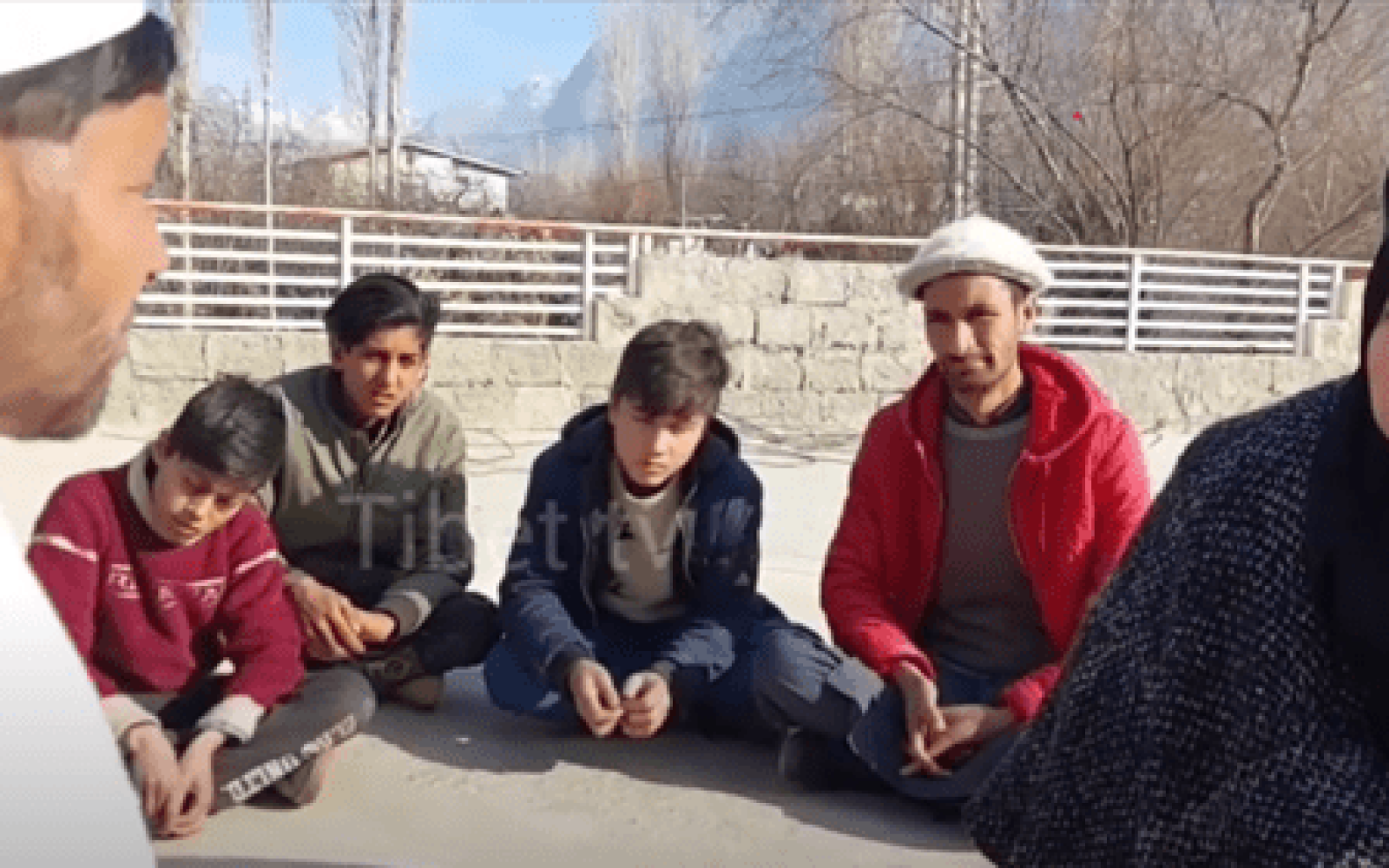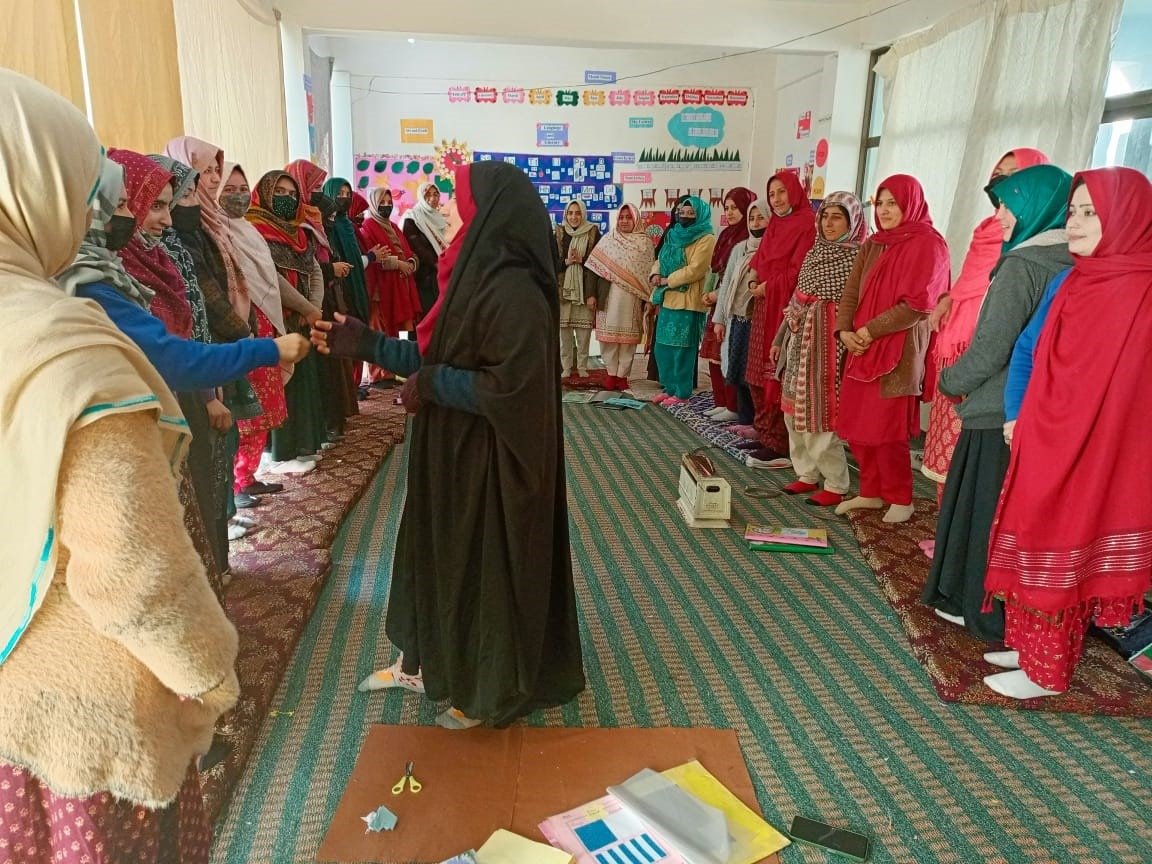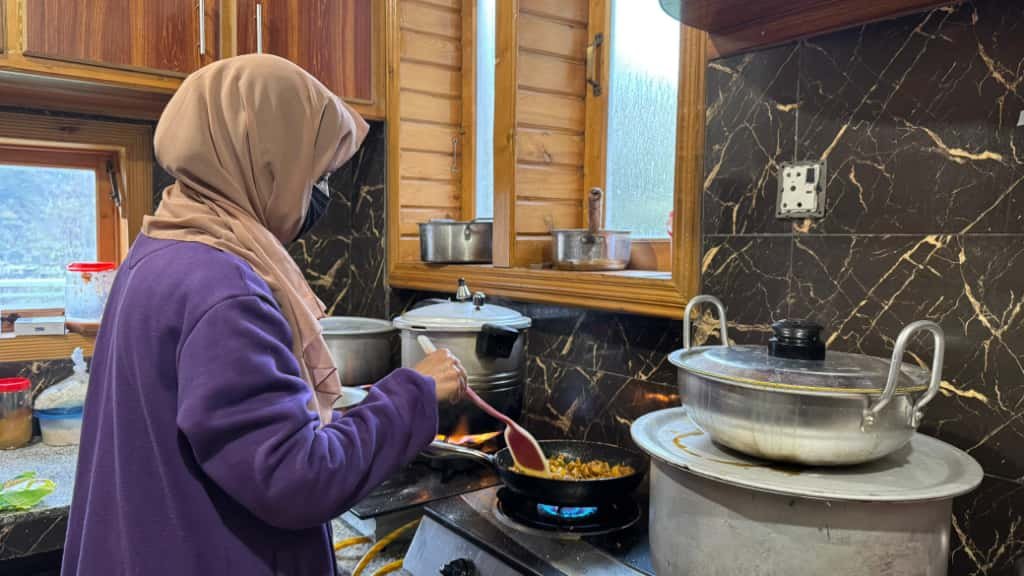By: Iffat Khatoon, Civil Society Officer
When Syeda Azra Fatima watched a short Balti-language drama on social media one evening, she didn’t expect it to change her life.
The story — Haq Maskyul (meaning Rightful Claimant) portrayed a young woman’s struggle to claim her inheritance after years of silence. As the character spoke with trembling but determined words, Azra felt something awaken inside her.
“It felt like she was speaking for me,” Azra said. “I had always believed asking for my share was wrong — that silence was honourable. But after watching the drama, I realised my silence was the real injustice.”
That realisation marked the beginning of a quiet change — one driven not by protests or courts, but by the power of storytelling.
From Silence to Self-Realisation
In the Baltistan region of northern Pakistan, women’s inheritance is both a legal and religious right, yet it has long been buried under layers of tradition. Daughters are told land belongs to sons; widows are told to depend on their husband’s family. Speaking up is often seen as disobedience — a betrayal of family honour.
Silence like this cannot be broken by awareness campaigns alone — it needs stories that touch the heart. Through the BEST4WEER project, funded by Global Affairs Canada (GAC), AKRSP supported the Tibet Baltistan Arts Council to produce Haq Maskyul, a locally recorded drama that conveyed this powerful message in the community’s own language.
A Historic Step — Women Taking the Stage
What made Haq Maskyul and some other locally produced drama under this projects truly historic was not only its sensitive subject matter but also the participation of female artists performing for the very first time in Baltistan.
Her presence symbolised a quiet but revolutionary step forward in challenging social taboos around women’s voices and visibility in public spaces. Before this, male actors had always impersonated female characters in local productions. The inclusion of a woman performer added authenticity, emotional depth, and unprecedented impact — especially among female viewers who saw their own struggles reflected in her role.
A Story That Reached Where Laws Could Not
Recorded entirely in the Balti language and set in a familiar local household, Haq Maskyul didn’t preach — it told a story that looked and felt real. The dialogues, setting, and emotions reflected the lived realities of many families across Baltistan.
Within days of its release on social media, it began circulating widely. The message — that women’s inheritance is both a legal and moral right — started to echo in conversations once dominated by silence.
In one remarkable case, a father and son who had been in a ten-year court battle over family property withdrew their case after watching the drama. The story made them reflect on the pain they had caused their daughter and sister.
When the son, Bashir Ahmed, later met Ali Kazim Golden, CEO of the Tibet Baltistan Arts Council, he said: “The drama made us realise the mistake we were living with. We gave my sister her rightful share. These stories are changing how we think.”
Turning Media into a Movement
Under the BEST4WEER Project, more than 75 locally produced SBCC dramas have been produced across Gilgit-Baltistan and Chitral, tackling sensitive issues such as inheritance rights, early and forced marriages, domestic violence, and women’s participation in decision-making.
The initiative has engaged two art councils — including the Tibet Baltistan Arts Council — and over ten civil society organisations (CSOs). Several independent artists have also contributed to these productions. Each drama is crafted in local languages — Balti, Shina, Khowar, Wakhi, and Burushaski — ensuring that the message resonates deeply with local communities.
Through these initiatives, creative media has become more than entertainment. It has become a bridge — connecting awareness with empathy, and law with lived experience.
From One Story to Many Voices
The impact of Haq Maskyul proved that change begins when people feel the injustice, not just hear about it. It gave women like Azra the courage to speak, and men like Bashir the humility to reflect.
What was once a private struggle is now a public conversation. In homes, community gatherings, and social spaces, people are questioning, discussing, and — most importantly — listening.
The story of Haq Maskyul shows how a simple, locally produced drama — when rooted in culture and compassion — can become a catalyst for transformation.
In the mountains of Baltistan, where silence once defined women’s lives, voices are finally being heard — and justice is beginning to take shape.
🎬 Watch Haq Maskyul here.





